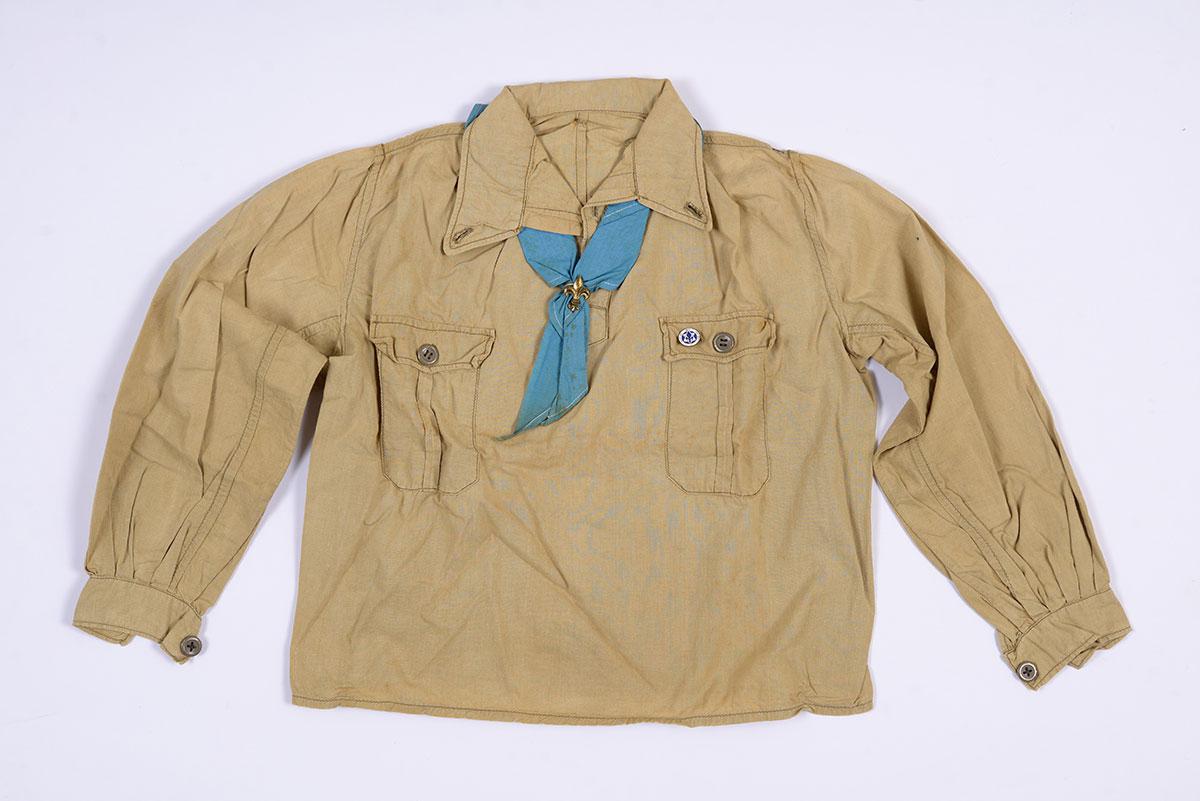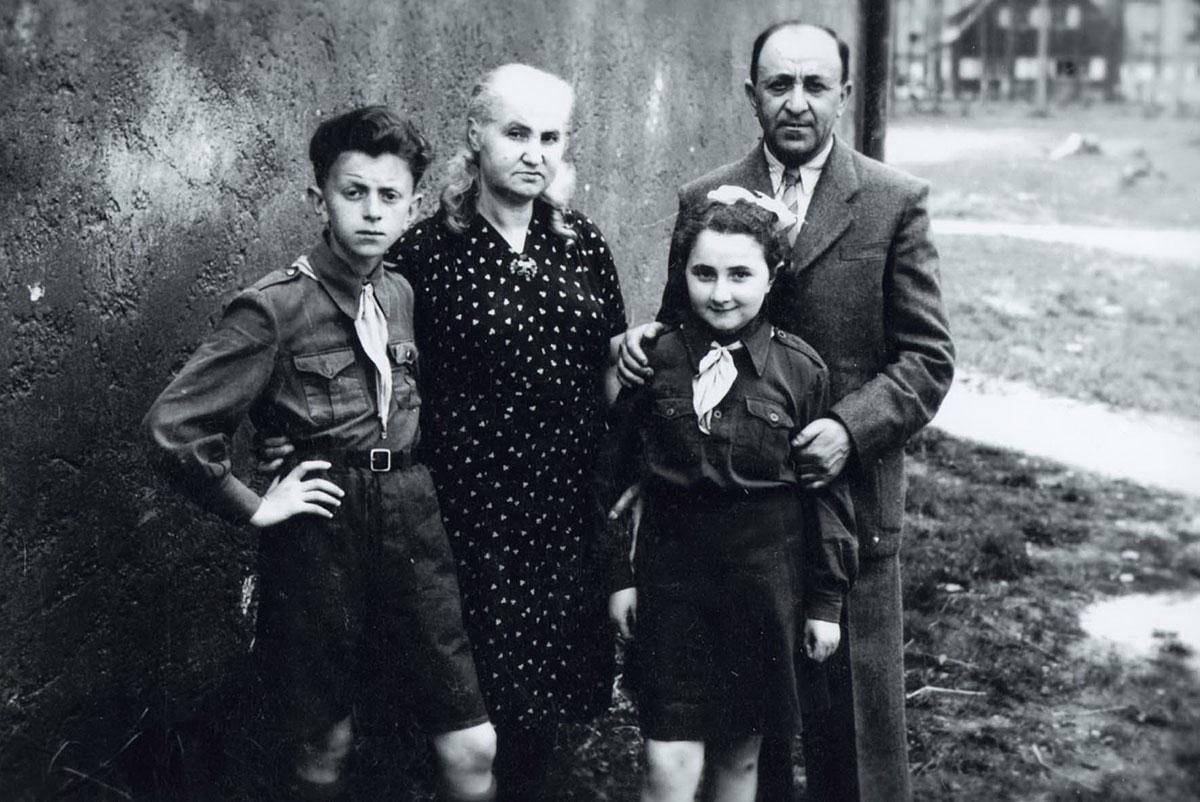
Yad Vashem Artifacts Collection
Michal (Geri) Dunsky, Ganei Tikvah; Dalit (Geri) Bar David, Rosh Ha'ayin


Yad Vashem Photo Archives, 9568/9

Sunday to Thursday: 09:00-17:00
Fridays and Holiday eves: 09:00-14:00
Yad Vashem is closed on Saturdays and all Jewish Holidays.
Entrance to the Holocaust History Museum is not permitted for children under the age of 10. Babies in strollers or carriers will not be permitted to enter.

Yad Vashem Artifacts Collection
Michal (Geri) Dunsky, Ganei Tikvah; Dalit (Geri) Bar David, Rosh Ha'ayin


Yad Vashem Photo Archives, 9568/9

The Gerges family from Alexandrja, Poland were active Zionists. The father, Shmuel, served as the Keren Kayemet (Jewish National Fund) representative in the town, and he and his wife Bilhah instituted Hebrew as the spoken language at home. Their children, Pesakh and Esther spoke fluent Hebrew.
In April 1940, the commander of the Soviet forces in the town informed the extended Gerges family that they were being deported from the area on the charge of being "bourgeois and Zionist". After a long journey they arrived in northern Kazakhstan near the border with Siberia, where they remained until the end of the war.
In 1946, the family returned to Poland. They arrived in Bielawa, where a DP camp had been set up under the auspices of the United Nations. Shmuel worked as a counsellor in an educational institution in the camp, but due to his efforts to locate children who had been hidden with non-Jewish families during the war and return them to Judaism, the family was forced to flee from the Polish authorities. They made their way to Germany and wandered from one DP camp to another while they waited for an opportunity to immigrate to Eretz Israel (Mandatory Palestine).
In 1947 Bilhah received a permit to immigrate to Eretz Israel, and made her way there alone. Shmuel, Pesakh and Esther boarded the "Exodus" and were returned to Europe.
In 1948, twelve-year-old Pesakh and ten-year-old Esther managed to reach Israel. Their father arrived a month later.
Yad Vashem Artifacts Collection
Michal (Geri) Dunsky, Ganei Tikvah; Dalit (Geri) Bar David, Rosh Ha'ayin

Thank you for registering to receive information from Yad Vashem.
You will receive periodic updates regarding recent events, publications and new initiatives.

"The work of Yad Vashem is critical and necessary to remind the world of the consequences of hate"
Paul Daly
#GivingTuesday
Donate to Educate Against Hate


Worldwide antisemitism is on the rise.
At Yad Vashem, we strive to make the world a better place by combating antisemitism through teacher training, international lectures and workshops and online courses.
We need you to partner with us in this vital mission to #EducateAgainstHate
The good news:
The Yad Vashem website had recently undergone a major upgrade!
The less good news:
The page you are looking for has apparently been moved.
We are therefore redirecting you to what we hope will be a useful landing page.
For any questions/clarifications/problems, please contact: webmaster@yadvashem.org.il
Press the X button to continue



